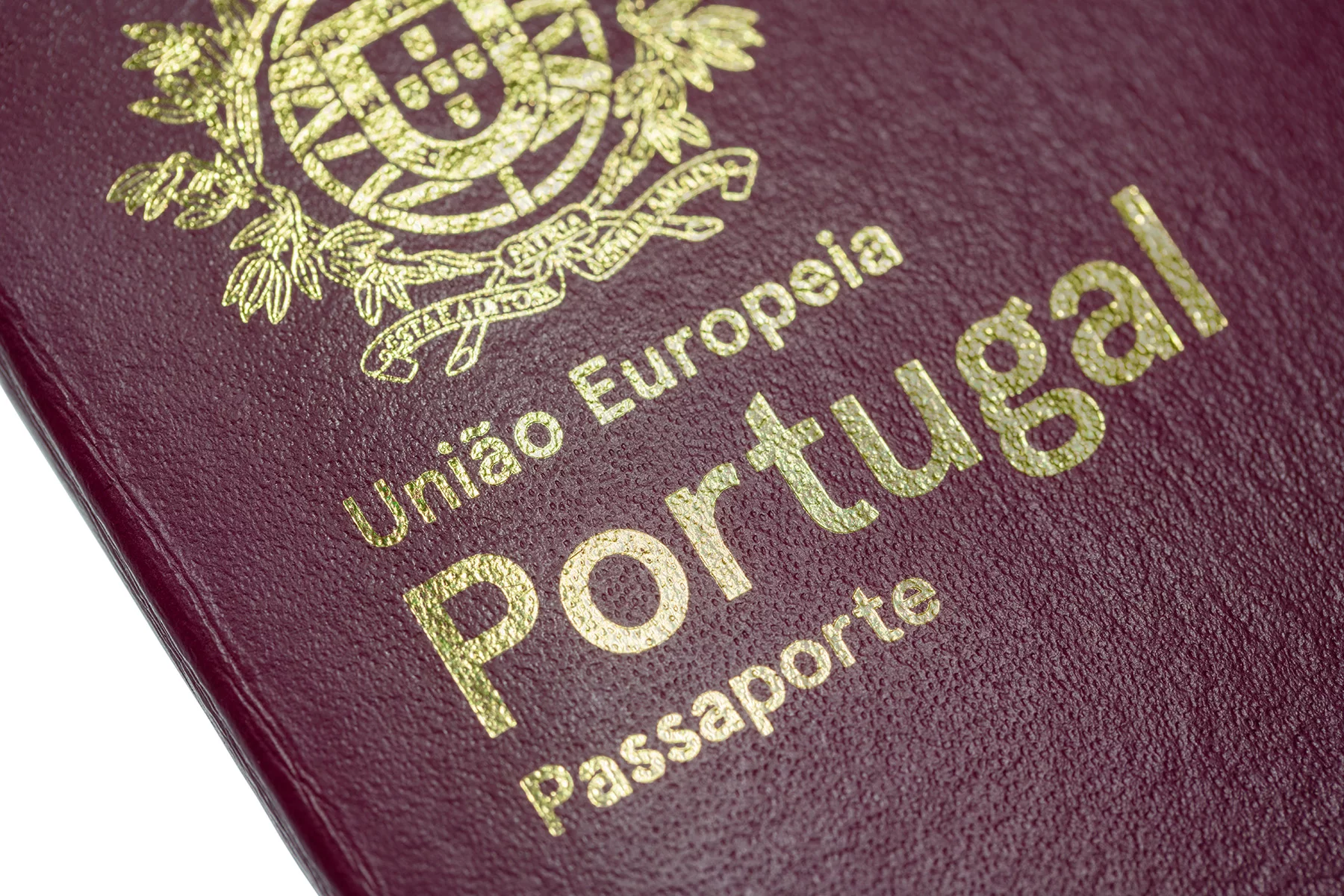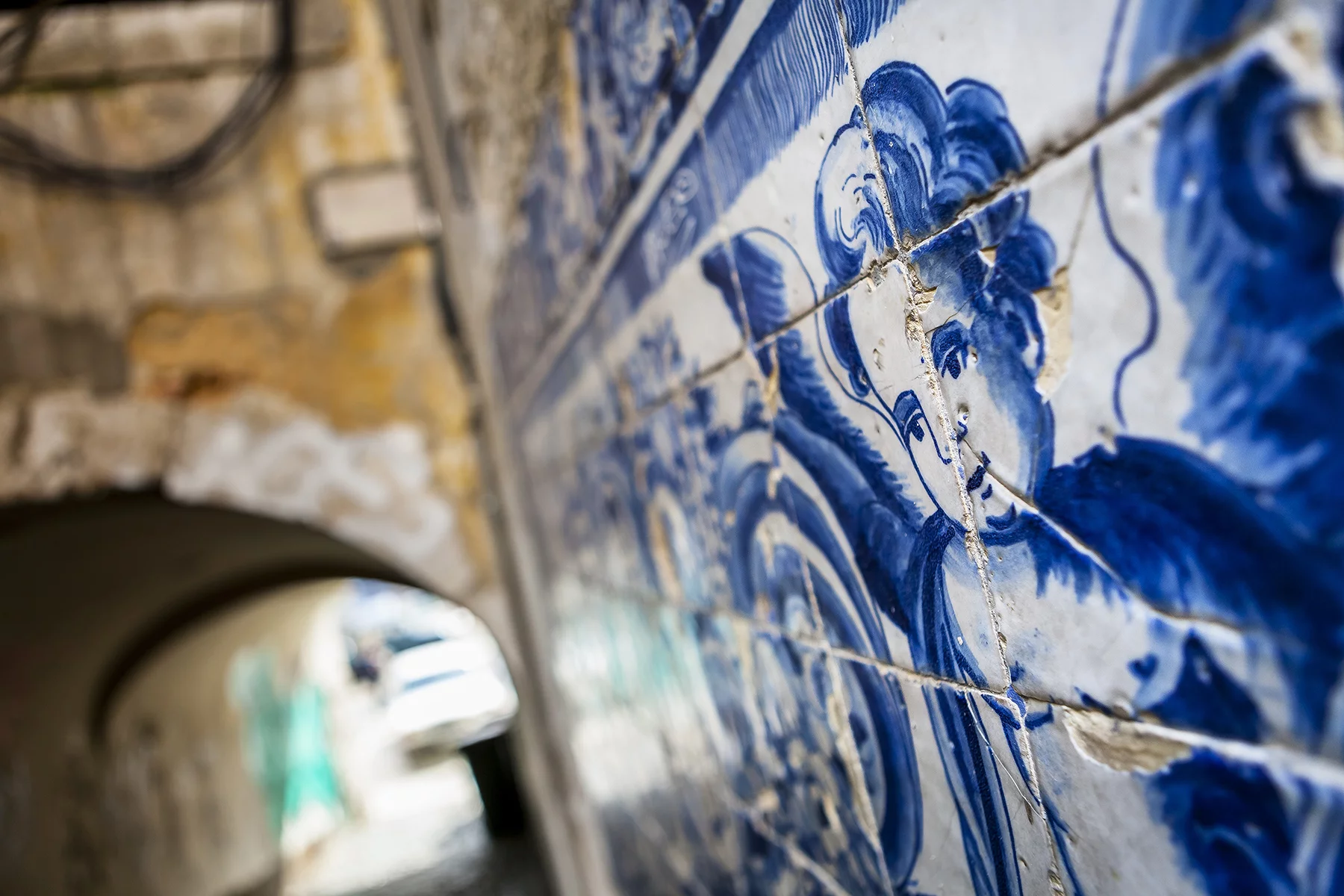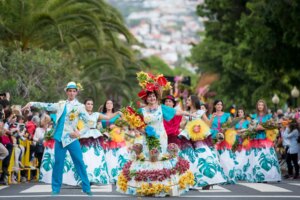Portugal transitioned from dictatorship to democracy in 1975 and now holds regular multi-party elections. The central government has executive power and is responsible for policies in areas such as healthcare and education, as well as for setting taxation. There are also administrations at the regional, municipal, and parish levels.
This guide explains how the Portuguese government and political system works, with sections on:
- Government and political system in Portugal
- President vs PM: who is currently in power in Portugal?
- Main political parties in Portugal
- The electoral system in Portugal
- Voting in Portugal
- Political representation in Portugal
- The political history of Portugal
- Judiciary system in Portugal
- Portugal and the European Union/EEA
- The state of the economy in Portugal
- Grassroots politics and political activism in Portugal
- Useful resources
Ground News
Get every side of the story with Ground News, the biggest source for breaking news around the world. This news aggregator lets you compare reporting on the same stories. Use data-driven media bias ratings to uncover political leanings and get the full picture. Stay informed on stories that matter with Ground News.
Government and political system in Portugal
Portugal is a republic (full name Republica Portuguesa) and a parliamentary democracy. The elected Portuguese government serves a four-year term and holds executive power. The Portuguese parliament is unicameral, meaning that a single body – the Assembly of the Republic (Assembleia da Republica) – passes legislation. The Assembly consists of 230 elected members from political parties.
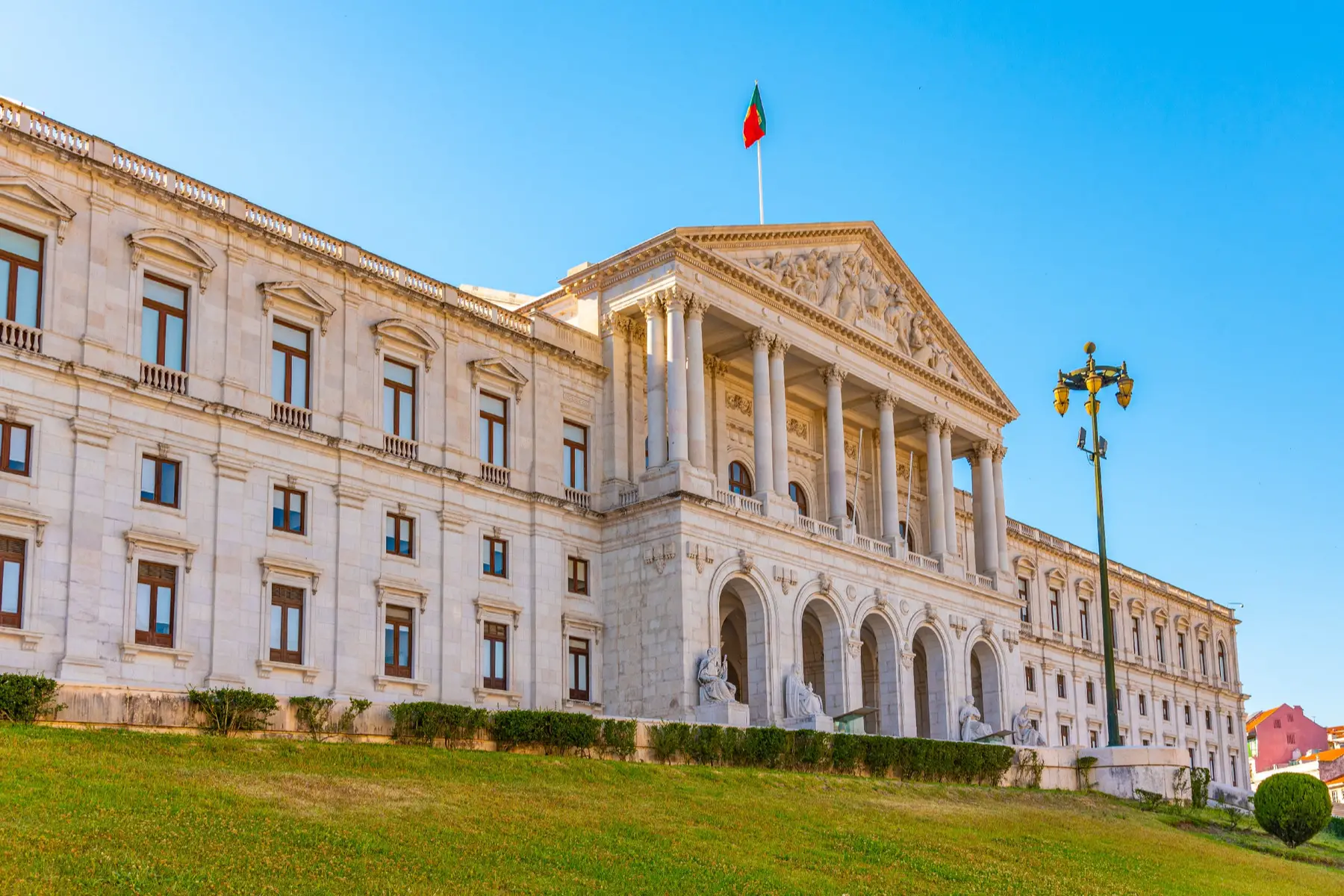
There are three tiers of local Portuguese government below the national administration: 18 districts (distritos) plus the autonomous regions (regiãos autónomas) of Azores and Madeira; around 300 municipalities (concelhos); and around 4,000 local parishes (freguesias).
The central government has also divided the mainland of the country into five regions for administrative purposes: North, Central, Lisbon Metropolitan Area, Alentejo, and the Algarve.
Portugal has had a written constitution since 1976. The country is 26th on the 2020 Democracy Index and ranks as having a flawed democracy.
President vs PM: who is currently in power in Portugal?
Portugal has both a president and a prime minister. The president serves as the head of state and is the most powerful person in the Portuguese government, although it is the prime minister who deals with most day-to-day running of government.
The president serves as the commander-in-chief of the armed forces. Portuguese presidents serve for five years, for a maximum of two consecutive terms. The current president of Portugal is Marcelo Rebelo de Sousa, associated with the PSD (Partido Social Democrata). He came to power in 2016 and won the 2021 presidential election with 60.7% of the vote.
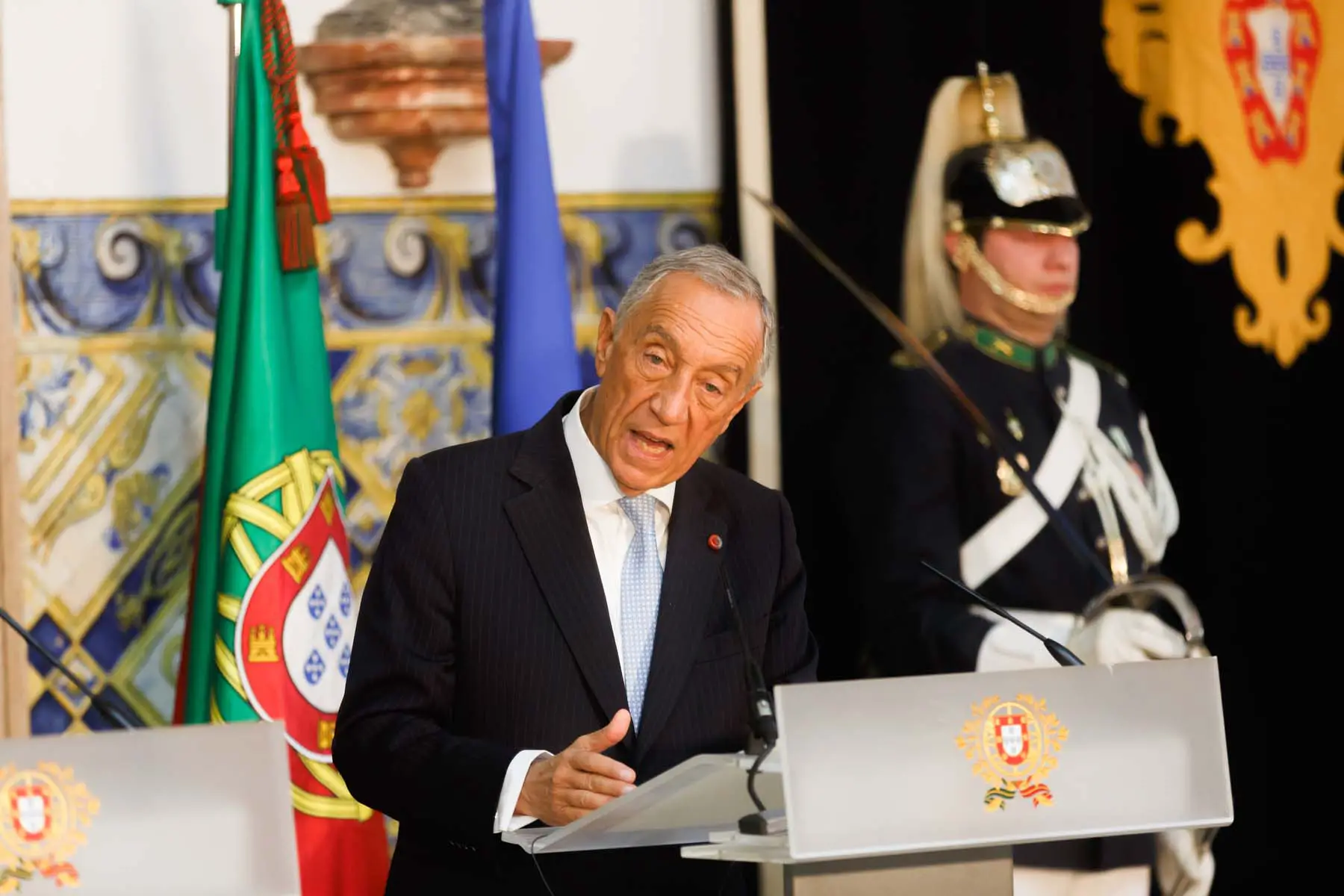
The president has the responsibility of appointing the prime minister of Portugal. This is typically the leader of the largest party in parliamentary elections or the leader of the party that forms a successful coalition government after an election. The prime minister serves as head of government and leads the Portuguese cabinet, the Council of Ministers (Conselho de Ministros). There are currently 15 ministers and 40 secretaries of state in the Portuguese government.
The current prime minister of Portugal is Luís Montenegro (since April 2024). He leads the 24th Constitutional Government and is the president of the Social Democratic Party (PSD).
The next Portuguese parliamentary election is due to take place in 2026.
Main political parties in Portugal
There are two dominant parties in Portuguese politics – the Socialist Party and the PSD. However, a number of other parties play a role, winning parliamentary seats and sometimes forming a coalition government.
Social Democratic Party (PSD)
The Partido Social Democrata (PSD) is the current governing party in Portugal and is the party with the most years in power in the modern Portuguese era. It has formed many governments since 1975, including four majority governments.
The ideology of the PSD has changed throughout the years and these days in a mixture of liberalism and conservatism. For example, it has supported economic liberalization and tax cuts while also promoting Christian social values. The current leader is Portuguese Prime Minister Luís Montenegro.

Socialist Party (PS)
Commonly abbreviated to PS, the Partido Socialista (Socialist Party) grew out of the Portuguese Socialist Action in 197. It supports social democracy, Keynesian economics, pro-Europeanism, and progressive social and civil rights.
The PS has been in government six times in the modern Portuguese political era. Since 1975, its total time in government has been 32 years out of nearly 50 years. The current leader is Pedro Nuno Santos.
Chega
Chega is a nationalist, populist political party founded only a few months before the 2019 parliamentary election. The party name means “Enough” in English, and it styles itself as a nationalist conservatism to the right of both the PSD and CDS. The party is led by former sports reporter André Ventura.
Liberal Initiative (IL)
Founded in 2017, Iniciativa Liberal (IL) is a classical liberal party championing economic and social freedom. The party won one seat at the 2019 elections with a manifesto that included introducing a flat 15% tax rate, moving to a more insurance-based healthcare system, and more freedom of choice in education. Its current leader is Rui Rocha.
Left Bloc (BE)
Bloco de Esquerda (Left Bloc, colloquially shortened as O Bloco) formed from a merger of left-wing parties and movements in 1999. BE stands on an economically progressive, democratic socialist platform. It supports improved civil rights, LGBT rights, workers’ rights, and gender equality.
The current party leader is Mariana Mortágua.
Unitary Democratic Coalition (PCP – CDU)
The Coligação Democrática Unitária (CDU) is a coalition between the Portuguese Communist Party (Partido Comunista Português – PCP) and the Ecologist Party/Greens (Partido Ecologista Os Verdes – PEV). The PCP – CDU platform is a mix of Marxism-Leninism and green environmental policies.
Paulo Raimundo is the current leader.
LIVRE
Eco-socialist party formed as a breakaway party from the Left Bloc in 2014. LIVRE (meaning “FREE”) states that its founding principles are ecology, universalism, freedom, equity, solidarity, socialism, and Europeanism. LIVRE follows a model of collective leadership, currently led by Rui Tavares and Teresa Mota.
People Animals Nature (PAN)
Founded in 2009, Pessoas-Animais-Natureza (PAN) is a Portuguese Green Party. Its politics are rooted in environmentalism, non-violence, social justice, and grassroots democracy. The party’s leader is Inês Sousa Real.
People’s Party (CDS – PP)
After the 2022 election, CDS–PP failed to win any seats and was wiped out of parliament for the first time in history.
The Centro Democrático e Social – Partido Popular (CDS – PP), is a conservative Christian party similar to the CDU in Germany. It also holds similar positions on several issues to the PSD, with whom it has twice formed a coalition government. However, it is more socially conservative than the PSD, particularly in its strong anti-abortion stance. It is also mildly eurosceptic.
Nuno Melo has been the party leader since 2022.
The electoral system in Portugal
Portugal has four types of elections: presidential, parliamentary, local (both municipal and parish), and European. The two autonomous regions of Azores and Madeira hold their own regional elections.
Presidential elections are every five years. Candidates are usually members of Portuguese political parties but stand as independents. Parties then choose a candidate to support. The president is elected in a two-round system. If no candidate wins 50% of the vote in the first round, the top two compete in a second round. However, the president has been elected after the first round of voting in most elections so far.
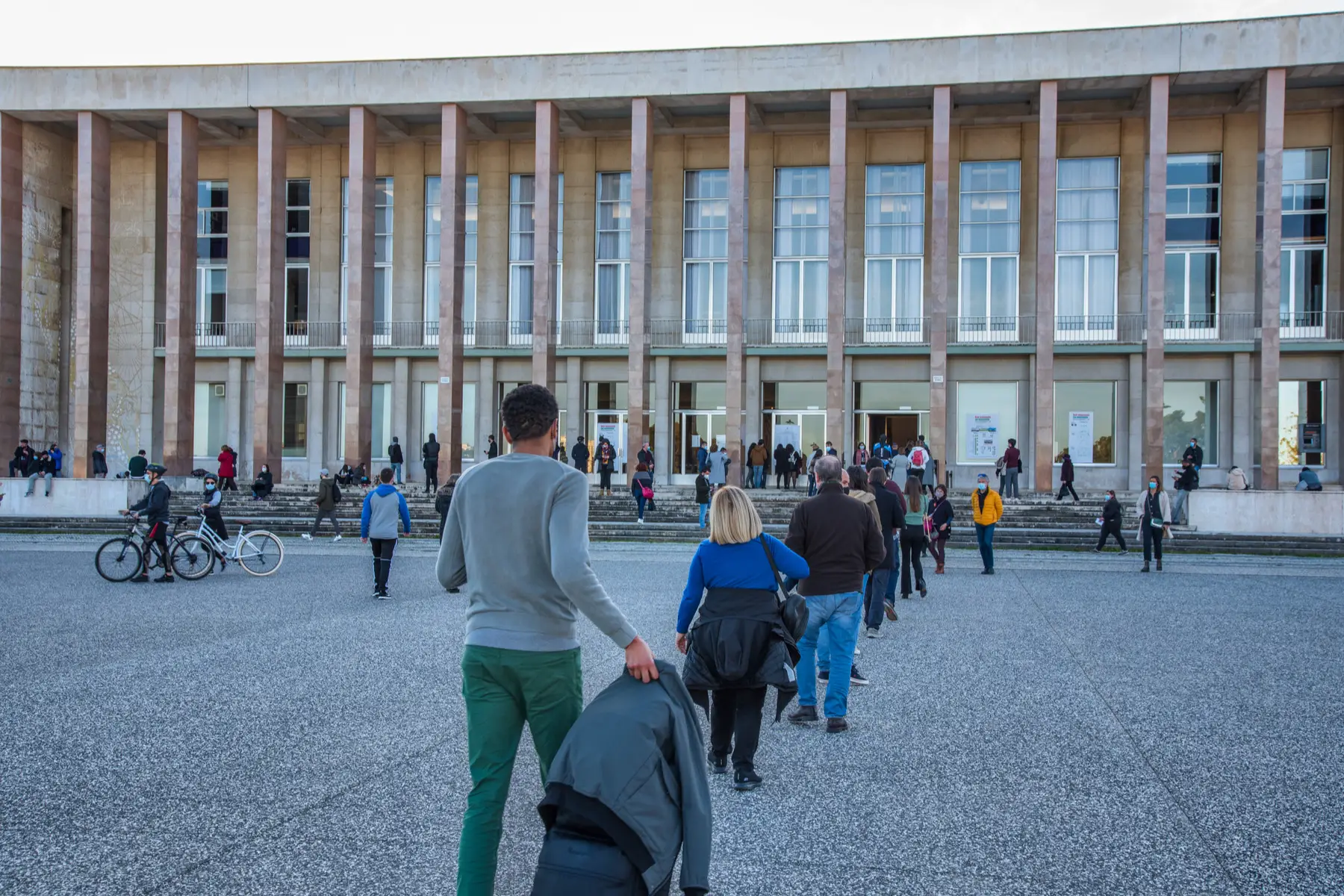
Parliamentary elections are every four years. Voters elect 230 members of the Assembly of the Republic using party-list proportional representation. Parties submit closed lists in each constituency and seats are apportioned according to vote-share in each constituency. The D’Hondt highest averages method is used, which tends to favor larger parties. MPs are elected to represent the whole country rather than individual constituencies.
Parliamentary elections are every four years. Local elections usually take place on the same day.
The president can call a referendum on any issue if the Assembly or the Portuguese government submits a proposal. Citizens can submit initiatives to the assembly. Referendum results are binding if voter turnout is above 50%.
Formation of the Portuguese government
If a party wins more than 50% of assembly seats (116 seats or more), they form a majority Portuguese government. Otherwise, the largest party can form a coalition government with other parties to take them over the 50% threshold. Occasionally, if the largest party cannot form a coalition, the second-placed party can form a coalition with other parties.
It is rare for a Portuguese party to win an overall majority in an election. In fact, the last majority Portuguese government was the Socialist Party administration between 2005 and 2009. The country has been ruled by minority governments for nearly half of the last 46 years (including the last six). This is where the largest party can’t or won’t form a coalition so rules without a majority. Minority governments are less stable and can be brought down with a vote of no confidence, as happened to the PSD government just a few weeks after the 2015 election.
Voting in Portugal
All Portuguese citizens aged 18 and over can vote in Portuguese elections. Voter registration is automatic through citizenship. Foreign residents cannot vote in parliamentary elections or presidential elections. However, the following can vote in local elections:
- EU citizens, who can also vote in European elections
- Citizens of Brazil and Cabo Verde who have been legal Portuguese residents for two years
- Nationals of Argentina, Chile, Colombia, Iceland, Norway, New Zealand, Peru, Uruguay, and Venezuela who have been legal Portuguese residents for three years.
Unlike for Portuguese citizens, registration for foreign residents is not automatic. You can register to vote through your local parish council. Find details here (website in Portuguese). You will need to have your Portuguese ID number to hand.
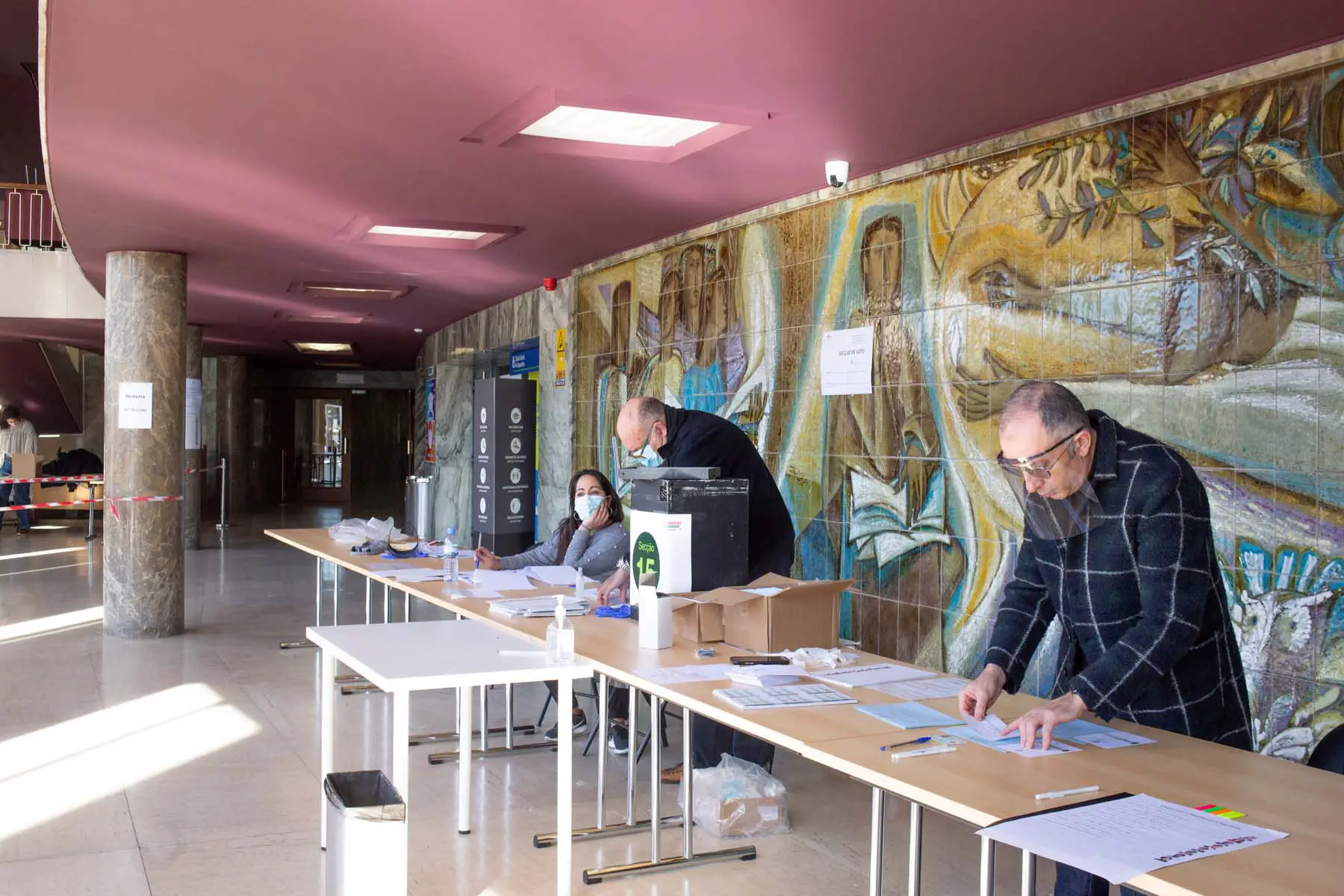
Hospitalized or seriously ill people, Portuguese citizens abroad, and prisoners who have not been denied voting rights can vote in advance if they cannot visit a polling station on Election Day. However, to vote on the day in person, you need to turn up at your local polling station with valid ID. If you’re registered to vote, you should be sent information on where to go shortly before polling day.
The 2019 parliamentary election saw the lowest ever voter turnout in Portugal, with just 48.6% casting a vote.
You can find out more information about voting in Portugal on the Ministry of Interior’s Electoral Administration (Administração Eleitoral) website (in Portuguese).
Political representation in Portugal
All Portuguese citizens aged 18 and above who are eligible to vote can stand for election in Portugal. EU citizens can stand in European elections and foreign residents eligible to vote can stand in local elections.
In terms of representation, 36% of Portuguese MPs are female (2023). This is above the global average of 27% and the EU average of 33%.
In 2019, only three MPs from ethnic minorities were elected to the Assembly, all of them women of African descent. This equates to 1.3%, below the 5% of the general population from minority groups.
The political history of Portugal
Portugal first became a republic in 1910 with the overthrow of the monarchy. A parliamentary democracy was established, lasting until a military coup in 1926. Antonio de Oliveira Salazar established a dictatorship in 1932, lasting until the Carnation Revolution in 1974.
The parliamentary democracy was re-established and a new constitution was put in place in 1976 establishing a separation of powers and limiting the powers of the president and the military. The constitution was revised in 1989 to allow for privatization and a transition to a free-market economy. Further revisions in 1992 allowed for greater European integration.
Since the overthrow of the Salazar regime, power has alternated between the PSD and Socialist Party who have governed through a series of majority and minority governments, coalitions, and alliances. In recent years, new parties have formed, won parliamentary seats, and grown in popularity, although the two main parties still command most of the public support.
Judiciary system in Portugal
Portugal has a civil law justice system and its judiciary is independent of the executive and legislative branches of the state. Laws are largely based on the Portuguese Constitution, various written codes (e.g. Penal Code, Civil Code, Labor Code), and EU laws and directives.
Courts in Portugal are divided into civil and administrative courts. Civil courts deal with most criminal and civil matters. There are three levels of civil court: the Supreme Court of Justice (Supremo Tribunal de Justiça), the courts of appeal (tribunais da relação) and district courts (tribunais de comarca). Administrative courts deal with administrative and financial matters, such as tax disputes.
There is also a constitutional court (Tribunal Constitucional) that deals with justice relating to legal-constitutional matters.
Portugal and the European Union/EEA
Portugal is a member of the EU, meaning that Portuguese residents with EU citizenship can vote in elections at the European level. It has been an EU member state since 1986, a Schengen Area country since 1995, and part of the Eurozone since 1999.
There are 21 Portuguese MEPs in the European Parliament as well as numerous Portuguese representatives on the different EU committees. Portugal also has permanent representation in Brussels.
Although EU membership and participation are generally well supported among the Portuguese public, there are Eurosceptic elements on both the left (Left Bloc, PCP) and right (Chega) of the political spectrum.
The state of the economy in Portugal
Portugal’s economy has diversified and liberalized significantly since it became an EU member state in 1986. It has a gross domestic product (GDP) of $516.84 billion as of 2023, which translates to $48,859 per capita when adjusted for purchasing power. The service sector dominates the economy, accounting for nearly 75% of GDP. Other key industries include clothing, chemicals, food, and manufacturing.
As with much of the world, Portugal’s economy was hit by the COVID-19 pandemic, which started in 2020. The pandemic has highlighted gaps in social welfare for poorer and more vulnerable groups as well as highlighting digital inequalities.
Unemployment rose to 7.2% at the height of the pandemic but has stabilized to 6.5% (2023). This is still well below the peak of 16.2% during the last economic recession in 2013.
Grassroots politics and political activism in Portugal
Portugal has a fairly strong culture of grassroots activism and citizen involvement in political movements that goes back to the days of the Carnation Revolution. There were mass anti-austerity protests involving numerous social movements during Portugal’s last big economic crisis in 2013. More recently, the global environmental movement Extinction Rebellion has gathered support and is active in seven Portuguese cities.
However, many grassroots groups in Portugal are very local, involving mostly native speakers. They vary from urban housing collectives to anti-racist groups to art-based projects. More well-known names include black feminist organization INMUNE (Instituto da Mulher Negra em Portugal) and anti-racist collective CAIP (Coletivo de Ação Imigrante e Periférica).
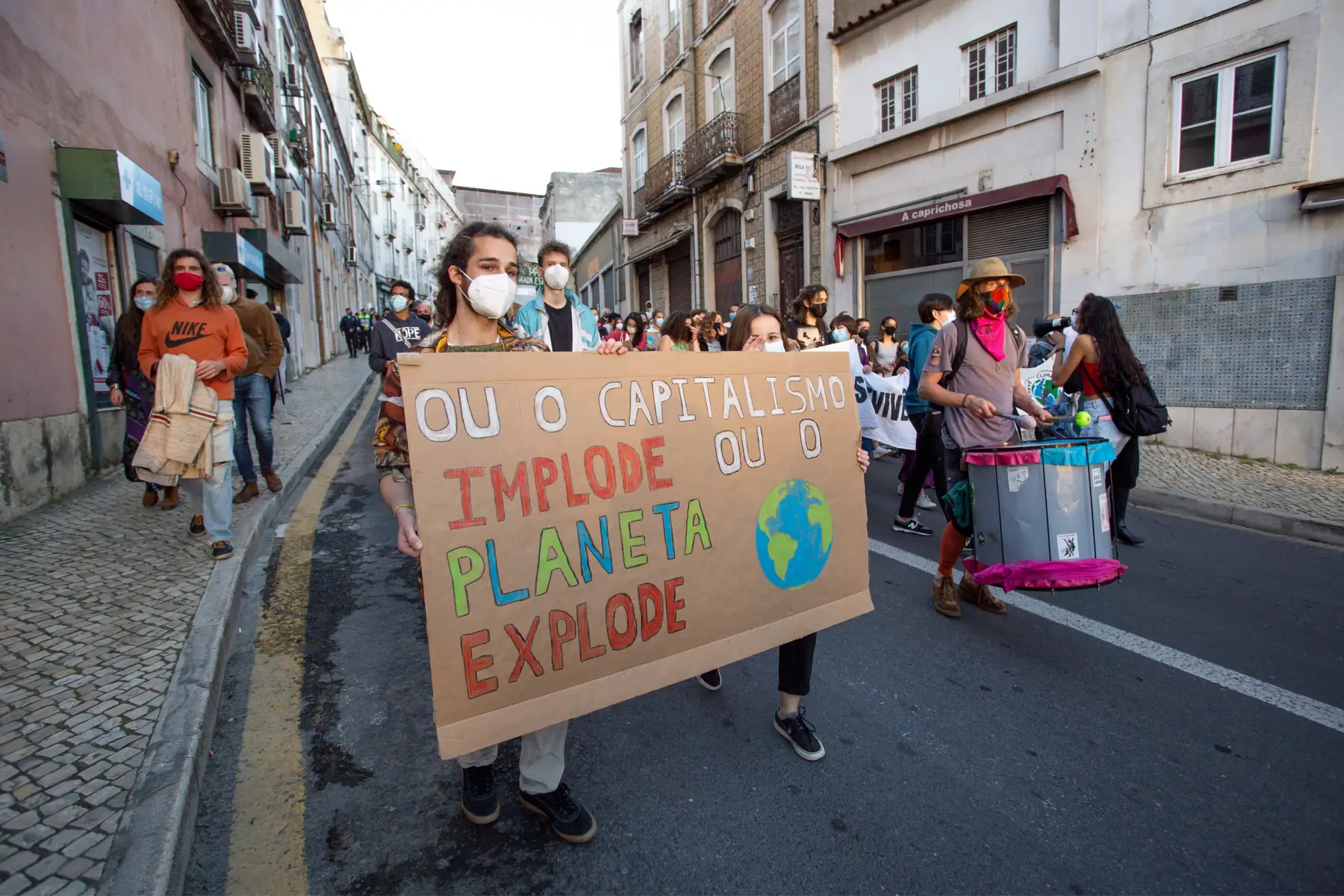
Other ways to get involved as a citizen with politics or political/social causes include:
- Joining a Citizens Initiative – these are a form of local direct democracy where citizens campaign for a particular issue. If there is enough local support, citizens can force a referendum on the issue. The EEA has €11 million of funding to support citizen movements in Portugal.
- Supporting a charity – there are a variety of charities and NGOs in Portugal set up to support causes ranging from poverty alleviation to youth development.
- Getting involved with local government – EU citizens, as well as nationals from some other countries, can participate in municipal and parish politics. This can include attending local meetings or even running for a local councilor position.
- Joining a trade union – an option if you work in Portugal. There are two large union confederations in Portugal ,plus around 400 smaller unions with over a million members in total.
Useful resources
- Portugal.gov.pt – official government website
- Assembly of the Republic (Assembleia da República) – Portuguese Parliament
- Presidency of the Portuguese Republic – official website for the Portuguese presidency
- Electoral Administration (Administração Eleitoral) – Ministry of Interior website with information about elections and voting in Portugal (in Portuguese)


